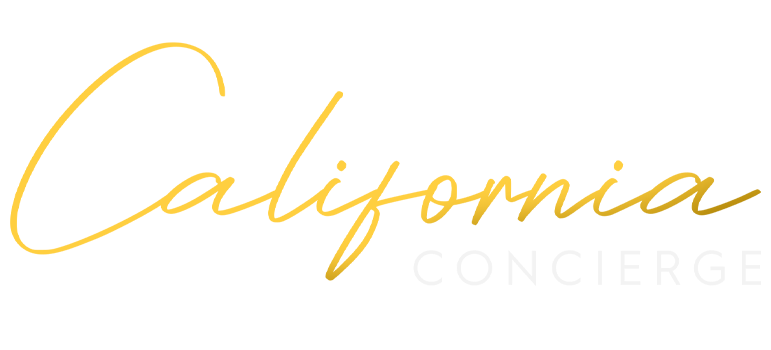REAL ESTATE INSIGHTS

In the highly competitive real estate market, having a robust online presence is not just beneficial—it's essential. Potential clients are increasingly turning to the internet to find their next home, making it crucial for real estate agents to stand out online. Search Engine Optimization (SEO) plays a pivotal role in this digital landscape, helping agents attract, engage, and convert leads. In this blog post, we will explore effective SEO strategies tailored for real estate agents to maximize their online presence and grow their business. Understanding SEO SEO, or Search Engine Optimization, is the practice of enhancing your website to improve its visibility on search engine results pages (SERPs). The higher your site ranks, the more likely potential clients are to find you. For real estate agents, SEO is particularly vital because it helps target specific audiences actively searching for properties or real estate services in your area. By understanding and implementing SEO, agents can ensure that their websites attract quality traffic, leading to more inquiries and, ultimately, more sales. To get professional assistance in enhancing your website's SEO, consider the expert services offered by California Concierge . Keyword Research Effective SEO begins with thorough keyword research. This process involves identifying the terms and phrases potential clients use when searching for real estate services. Tools like Google Keyword Planner, SEMrush, and Ahrefs can be invaluable in discovering these keywords. Long-tail vs. Short-tail Keywords: Long-tail keywords (e.g., "3-bedroom house in San Francisco") are more specific and often have lower competition than short-tail keywords (e.g., "houses for sale"). They can attract highly targeted traffic, making them valuable for real estate agents. Local Keywords: Incorporating local keywords (e.g., "Los Angeles real estate agent") is crucial for agents as clients typically search for properties in specific locations. Local keywords help your site appear in relevant local searches, driving more qualified leads to your website. On-Page SEO On-page SEO refers to optimizing individual web pages to rank higher and earn more relevant traffic. Here are some essential on-page SEO techniques: Title Tags and Meta Descriptions: Craft compelling title tags and meta descriptions for each page. These elements should include target keywords and be designed to entice users to click through to your site. Header Tags: Use header tags (H1, H2, H3) to structure your content. These tags help search engines understand the hierarchy and relevance of your content. Image Optimization: Ensure all images have descriptive file names and alt text that includes relevant keywords. This practice not only helps with SEO but also makes your site more accessible. High-Quality Content: Create informative, engaging, and original content that addresses the needs and interests of your audience. Blog posts, property listings, and guides are excellent content types for real estate websites. Off-Page SEO Off-page SEO involves activities outside your website that can impact your rankings. These strategies focus on building your site's authority and credibility. Backlinks: Acquiring high-quality backlinks from reputable websites is critical. These links act as endorsements for your site, boosting its authority in the eyes of search engines. Social Media Engagement: Actively engaging with your audience on social media platforms can drive traffic to your website and enhance your online presence. Guest Blogging: Writing guest posts for popular real estate blogs or collaborating with influencers can increase your site's visibility and attract new audiences. Local SEO Local SEO is particularly important for real estate agents, as it helps attract clients in your specific geographic area. Google My Business: Claim and optimize your Google My Business listing. Ensure all information is accurate and complete, including your address, phone number, and business hours. Regularly update your listing with new photos and posts. Client Reviews: Encourage satisfied clients to leave positive reviews on your Google My Business page and other review sites. Positive reviews can significantly impact your local SEO rankings. Local Citations: Ensure your business information is consistent across all online directories and local listings. Consistency helps search engines verify your business's legitimacy. Localized Content: Create content that addresses local market trends, community events, and other location-specific topics. This approach not only engages local audiences but also improves your local search rankings. Measuring and Analyzing SEO Performance To ensure your SEO strategies are effective, it's essential to measure and analyze your performance regularly. Google Analytics and Search Console: These tools provide valuable insights into your website's traffic and performance. Use them to monitor your rankings, track user behavior, and identify areas for improvement. Key Performance Indicators (KPIs): Track KPIs such as organic traffic, bounce rate, conversion rate, and average session duration. These metrics help you understand how well your SEO efforts are paying off. Data-Driven Adjustments: Use the data gathered to refine and adjust your SEO strategies. Continual improvement is key to maintaining and enhancing your online presence. Conclusion A strong online presence is indispensable for real estate agents aiming to thrive in today's digital world. By understanding and implementing effective SEO strategies, agents can attract more targeted traffic, generate quality leads, and ultimately, close more deals. Remember, SEO is an ongoing process that requires regular monitoring and adjustments. Stay committed to optimizing your online presence, and you'll see long-term success. Call to Action Ready to boost your online presence and attract more clients? Start implementing these SEO strategies today and watch your real estate business grow. For more tips and personalized guidance, feel free to contact us or follow our blog for regular updates. And if you need professional help to optimize your website and SEO strategies, visit California Concierge for expert web services tailored to your real estate business needs. Additionally, our team offers comprehensive digital marketing solutions to help you stay ahead in the competitive real estate market.

In today's digital age, a strong online presence is crucial for success in the real estate industry. Your website is often the first point of contact for potential clients, making it essential to create a site that not only looks professional but also provides valuable information and an excellent user experience. In this post, we will explore the design and content essentials that make a real estate website truly stand out. Design Essentials User-Friendly Interface A user-friendly interface is the cornerstone of a successful real estate website. Visitors should be able to navigate your site easily and find the information they need without frustration. Ensure your website has clear, intuitive menus and a logical layout. Additionally, with more people using mobile devices to browse the internet, mobile responsiveness is non-negotiable. Your site should be just as functional and attractive on a smartphone or tablet as it is on a desktop. For a seamless user experience, consider partnering with a professional service like California Concierge that specializes in creating custom real estate websites tailored to your needs. Aesthetic Appeal Aesthetics play a significant role in creating a positive first impression. A clean, modern design with a cohesive color scheme and professional typography can make your website more appealing. High-quality images and videos are particularly important in real estate, as they allow potential buyers to visualize properties. Invest in professional photography and consider using video tours to showcase listings. Speed and Performance Website speed is another critical factor. Slow loading times can frustrate users and drive them away. Optimize your website's performance by minimizing file sizes, using efficient coding practices, and choosing a reliable hosting provider. A fast, smoothly operating website will keep visitors engaged and more likely to explore your listings. Content Essentials Engaging Property Listings The heart of any real estate website is its property listings. Each listing should include detailed descriptions that highlight the property's features and benefits. High-resolution photos are a must, and virtual tours can provide an immersive experience for potential buyers. Make sure your listings are easy to search and filter so visitors can find exactly what they're looking for. Community Information Providing information about the communities you serve can be a significant value-add for your website. Highlight local amenities such as parks, restaurants, and shopping centers. Include data on school districts, as this is often a crucial factor for families considering a move. Detailed community profiles can help potential buyers get a sense of the area's lifestyle and make more informed decisions. Blog and Resources A blog can be a powerful tool for attracting and retaining visitors. Write articles on a variety of topics, including tips for buying and selling homes, market trends, and home maintenance advice. Regularly updated content can improve your site's SEO and position you as an expert in your field. Additionally, providing resources such as mortgage calculators, checklists, and guides can enhance the user experience and provide practical value. For a robust content strategy, consider the services offered by California Concierge to help manage and create engaging blog content that drives traffic and builds your brand. Client Testimonials Testimonials from satisfied clients can build trust and credibility. Highlighting successful transactions and positive experiences can reassure potential clients that they are in good hands. Include a mix of text and video testimonials to make this section more engaging and persuasive. SEO and Marketing Strategies SEO Best Practices Search engine optimization (SEO) is essential for driving organic traffic to your website. Use keyword optimization to ensure your site appears in relevant search results. Incorporate keywords naturally into your content, including in titles, headings, and meta descriptions. Don't forget to add alt text to images to improve accessibility and SEO. Local SEO For real estate, local SEO is particularly important. Focus on local keywords that potential buyers might use when searching for properties in your area. Optimize your Google My Business listing and encourage satisfied clients to leave reviews. This can help your website rank higher in local search results and attract more qualified leads. Social Media Integration Social media can amplify your marketing efforts and drive traffic to your website. Share your listings, blog posts, and other valuable content on platforms like Facebook, Instagram, and LinkedIn. Engage with your audience by responding to comments and messages, and consider running targeted ads to reach potential clients in your area. Tools and Technologies CRM Integration A Customer Relationship Management (CRM) system can streamline your operations and improve client interactions. Use a CRM to manage leads, track communications, and automate follow-ups. This can help you stay organized and ensure that no potential client falls through the cracks. Analytics and Tracking Monitoring your website's performance is crucial for continuous improvement. Use tools like Google Analytics to track visitor behavior, identify popular content, and understand traffic sources. Analyzing this data can help you make informed decisions and adjust your strategies to better meet your goals. Conclusion Creating a killer real estate website requires a blend of excellent design, compelling content, and effective marketing strategies. By focusing on user experience, providing valuable information, and leveraging the latest tools and technologies, you can create a website that not only attracts visitors but also converts them into clients. Invest in your online presence today to stay competitive and succeed in the dynamic world of real estate. For expert assistance in building and optimizing your real estate website, visit California Concierge and see how we can help you achieve your goals.

Email marketing is a powerful tool for real estate professionals seeking to expand their reach, engage potential clients, and close more deals. Despite the rise of social media and other digital marketing strategies, email marketing remains a consistent and effective method for communication. Here’s how real estate agents can harness the potential of email marketing to enhance their business, and how California Concierge can support you in this journey.

In the competitive world of real estate, creating a unique and memorable personal brand is paramount. As a real estate professional, your brand is more than just a business card; it’s your signature in the market, representing your values, expertise, and the unique flair you bring to your clients. This comprehensive guide offers insightful branding tips tailored for real estate professionals aiming to elevate their presence and effectiveness in the industry. Define Your Brand Identity Your brand identity starts with understanding who you are, what you stand for, and whom you serve. It involves digging deep into your personal strengths, your professional specialties, and the specific needs of your target audience. Create a brand statement that reflects your professional philosophy, your approach to handling real estate challenges, and the benefits you provide that set you apart from the competition. For example, at California Concierge , we assist real estate professionals in sculpting a brand identity that speaks directly to their ideal client base, helping them to stand out in a saturated market with elegant logos and targeted marketing strategies. Consistency Across All Channels Ensure that every point of interaction with clients reflects your brand identity consistently, from your website design to your social media profiles, and even the way you communicate in emails and direct correspondence. Consistency builds trust and helps in forging a strong, recognizable brand that people remember and refer back to. Leveraging a professional service like California Concierge can ensure that your branding remains consistent and polished, reinforcing your professional image at every touchpoint. Master the Art of Storytelling In real estate, your ability to tell a story can be the difference between making a sale or not. Stories create connections and emotional responses. Craft narratives around your listings that don’t just sell a house, but a lifestyle. Share stories about your journey in the real estate industry, the successes you’ve helped clients achieve, and the unique methods you employ in your work. Engage with Video Content Video marketing is particularly effective in the real estate sector. Videos can showcase properties more dynamically than images alone, providing a real-life experience of the space. But beyond property tours, videos can also be used to share tips, market updates, and behind-the-scenes glimpses of your day-to-day work life, which adds a personal touch and builds rapport with potential clients. Build Your Online Presence A strong online presence helps you to be found more easily in search engines and increases your visibility. Optimize your website for SEO, focusing on keywords such as "Best Neighborhoods to Live in the Bay Area.” Regularly update your blog with useful content, engage on social media, and ensure your listings are easy to find and navigate. Utilize Client Feedback Client feedback is incredibly valuable. Regularly collect and analyze feedback to understand your clients’ needs better and refine your services. Positive testimonials should be prominently displayed on your website and social media to enhance credibility and attract new clients. Network Effectively Networking is vital in the real estate business. Attend real estate conferences, participate in community events, and connect with other industry professionals online. Networking can lead to referrals and opportunities that might not be available through traditional marketing channels. Building relationships with local businesses and community leaders can also amplify your visibility and credibility within the market. Personalize Your Approach Personalization goes a long way in building a strong brand. Tailor your services and interactions to meet the specific needs and preferences of your clients. This personalized approach not only improves client satisfaction but also strengthens client loyalty and referrals, which are invaluable in the real estate industry. Stay Educated and Adaptable The real estate market is constantly changing, and staying updated with the latest trends, technologies, and laws is crucial. This not only helps you adapt your strategies to better meet the needs of the market but also demonstrates your commitment to your profession and to providing the best service to your clients. Final Thoughts Building a strong personal brand in real estate is about more than just selling properties; it’s about establishing yourself as a trusted, knowledgeable, and indispensable resource in the industry. Implement these branding tips, and watch as your professional identity grows stronger and your client base expands. Whether you need a stunning logo, a cohesive brand strategy, or a dynamic online presence, remember that California Concierge is here to elevate your branding efforts. Together, we can ensure that your real estate brand is powerful, distinctive, and memorable. Take these steps to heart, and build a brand that truly represents the best of what you offer as a real estate professional. The right branding not only captures the essence of your business but also opens doors to new opportunities.

In the digital era, the real estate game has evolved way beyond yard signs and newspaper listings. Today, social media is the MVP for real estate agents and brokers looking to score big in the market. Whether you're a seasoned agent or a budding brokerage, understanding the ins and outs of social media can transform your business. However, it's important to note that managing these platforms effectively can be time-consuming and requires specific expertise. This is where our Social Media Management Package comes in. Tailored for real estate professionals, our service ensures your social media presence is not only active but also strategic and professional. Let’s dive into how you can make these platforms work for you, and how our package can assist in this journey. The Digital Landscape of Real Estate: Why Social Media? First things first, why is social media the go-to tool for real estate pros? Here's the scoop: a whopping majority of home buyers start their journey online, and guess where they spend a lot of their time? Yep, social media. Platforms like Facebook, Instagram, and LinkedIn aren’t just for cat videos and connecting with old school pals anymore. They're powerhouses for networking, branding, and selling. Facebook: The Real Estate Playground Let's kick off with Facebook, the undisputed king of social media. For real estate agents, Facebook is like a 24/7 open house. Here’s how to make it work: Crafting Engaging Listings: Go beyond posting basic information. Tell a story with your listings. Include neighborhood details, nearby amenities, and lifestyle opportunities that the property offers. High-quality photos and videos can turn a simple listing into a compelling narrative. Leveraging Facebook Ads: Harness the power of Facebook's targeted advertising. You can zero in on specific groups based on their location, interests, and even behaviors. It’s crucial to track the performance of these ads to continually refine your approach for maximum reach and effectiveness. Community Building and Engagement: Create a community around your brand. Regularly post updates about local events, market trends, and home maintenance tips. This consistent interaction not only boosts your visibility but also establishes you as a knowledgeable and trustworthy professional in the field. Instagram: A Picture-Perfect Portfolio Instagram is your visual storyboard. Here's how to nail it: Curating Visual Content: Focus on creating a visually appealing grid that represents your portfolio. Before-and-after shots of renovations, high-quality images of interiors and exteriors, and showcasing unique property features can captivate your audience. Utilizing Stories and Reels for Engagement: Instagram Stories and Reels are excellent for creating time-sensitive, engaging content. Share day-in-the-life snippets, quick property tours, or answer FAQs in a more personal and engaging way. Hashtags and Geotags for Wider Reach: Research and use popular real estate hashtags and geotags to increase visibility. This strategy can expose your properties to a broader audience and attract potential buyers outside your immediate network. LinkedIn: The Professional's Network LinkedIn is the suit-and-tie version of social media, perfect for building professional relationships. Use it to: Sharing Industry Knowledge and Market Insights: Regularly posting well-researched articles and updates about the real estate market can position you as a thought leader in your field. Networking Opportunities: Engage with other real estate professionals, join discussions, and connect with potential clients. Recommendations and endorsements from peers and clients can significantly enhance your professional reputation. Active Participation in Groups: Contributing valuable insights in real estate-related LinkedIn groups can increase your visibility and credibility, opening doors to new opportunities and connections. Content Is King: What to Post Okay, so you've got the platforms, but what about the content? Here are some ideas: Market Analysis and Updates: Delve into market trends, provide analysis, and offer your unique perspective. This approach helps in building trust and positions you as an authority in your field. Client Testimonials and Success Stories: Authentic stories of client experiences resonate well with the audience. They not only provide social proof but also humanize your brand. Educational Content: Guides on home buying, selling processes, or property investment can be incredibly valuable to your audience. This type of content is not only helpful but also encourages sharing, further extending your reach. Engaging Your Audience: It’s a Two-Way Street True engagement is responsive and interactive. Promptly responding to comments, initiating conversations, and showing appreciation for followers’ engagement goes a long way in building a loyal community. Utilizing Analytics for Strategic Planning Regularly review your social media analytics to understand audience preferences and behaviors. What posts are getting the most engagement? When is your audience online? This insight is crucial for tailoring your content and strategy to meet the needs and interests of your audience. But if diving into analytics and adapting strategies seems overwhelming, our Social Media Management Package can do the heavy lifting for you. Our experts analyze your social media performance and refine strategies to ensure maximum engagement and reach. The Tech-Savvy Agent: Embrace Innovation Stay ahead of the curve. Incorporate virtual tours, drone footage, and other tech innovations in your social media strategy. Show that you're not just in the market, but that you're leading it. Consistency is Key Maintain a consistent brand voice across all platforms. Whether you’re the friendly neighborhood expert or the luxury property guru, let your brand’s personality shine through. In Conclusion Social media for real estate isn't just about selling properties; it's about building relationships, establishing your brand, and setting yourself apart in a crowded digital space. Dive in, experiment, and watch your real estate business flourish in the online world. It’s time to get social! FAQs:

Discover 15 creative video ideas that every real estate agent should use to enhance their marketing strategy. From virtual tours to market analyses, learn how to engage, inform, and connect with your clients through impactful video content. In today's fast-paced real estate market, the key to capturing the attention of potential clients is through engaging and informative content. And what better medium to convey this than through video? Video marketing has emerged as an indispensable tool in the arsenal of successful real estate agents. It's not just about showcasing properties; it's about weaving a narrative that resonates with buyers and sellers alike. Video content serves as a bridge connecting agents with their audience, providing a platform for storytelling, information sharing, and brand building. Whether it’s a detailed tour of a stunning property, a glimpse into the vibrant community surrounding it, or valuable insights from the agents themselves, videos offer an unparalleled opportunity to engage and inform. As we delve into the world of real estate video marketing, we explore 15 essential video concepts every real estate agent should consider adding to their marketing strategy. From virtual property tours to personalized agent introductions, each video type serves a unique purpose in building a comprehensive and effective online presence. 1. Virtual Property Tours Bringing Properties to Life Virtually In an era where digital convenience is paramount, virtual property tours stand as a cornerstone of real estate marketing. These tours allow potential buyers to explore properties in detail from anywhere in the world, at any time. As a Realtor, creating virtual tours that are immersive and informative can significantly boost your property's appeal. Focus on high-quality visuals, smooth navigation, and clear narration to highlight unique features and sell the dream of a new home.

In the dynamic realm of real estate, where the competition is fierce and the market is ever-evolving, establishing a robust digital presence has become imperative for success. Digital marketing, once considered an option, is now a necessity for real estate agents looking to connect with their audience effectively and stay ahead in a competitive landscape. This introductory guide will help navigate you through the intricacies of digital marketing, providing actionable insights to help real estate agents build a strong online foundation. Understanding Digital Marketing Basics Digital marketing is a multifaceted strategy encompassing various channels and tools designed to promote products or services online. For real estate agents, this involves a strategic blend of a professional website, social media engagement, email marketing, search engine optimization (SEO), and paid advertising. Understanding the nuances of each component is vital for creating a holistic digital marketing strategy that resonates with your target audience and drives results. Building a Professional Website Your website serves as the digital face of your real estate business, making it crucial to create a positive and lasting impression. A user-friendly, visually appealing, and mobile-responsive website is not only essential but sets the stage for success. Incorporate detailed property listings, captivating visuals such as high-quality photos and virtual tours, clear contact information, and compelling client testimonials. This comprehensive approach will transform your website into a powerful tool for attracting and retaining clients. Website services: www.californiaconcierge.com/websites Leveraging Social Media Selecting the right social media platforms is a strategic decision that can significantly impact your reach and engagement. Tailor your content to each platform unique characteristics and regularly share updates, property highlights, and valuable information. The inclusion of paid advertising on platforms like Facebook can amplify your reach, allowing you to target specific demographics with precision. Social media is not just a promotional tool but a dynamic platform for building relationships and fostering community engagement. Social media services: www.californiaconcierge.com/social-media Email Marketing Strategies Building and nurturing an email list is a cornerstone of effective digital marketing for real estate. Crafting informative and engaging email campaigns, including property updates, newsletters, and special promotions, creates a direct line of communication with potential buyers and sellers. By providing valuable content through email, you strengthen your relationship with clients and position yourself as a trusted resource in the competitive real estate market. Email marketing services: www.californiaconcierge.com/email-campaign Optimizing for Search Engines In the vast landscape of the internet, optimizing your website for search engines is paramount. This involves implementing SEO strategies that ensure your website appears in relevant search results. Conduct thorough keyword research, optimize website content, and pay special attention to local SEO tactics when targeting specific markets. A strong SEO foundation enhances your online visibility and increases the likelihood of attracting qualified leads. Paid Advertising for Real Estate Google Ads and Facebook Ads offer real estate agents powerful platforms for paid advertising. Crafting targeted ad campaigns allows you to reach potential clients based on demographics, location, and interests. Setting a reasonable budget and regularly analyzing the performance of your ads enables you to maximize your return on investment. Paid advertising, when executed strategically, can be a catalyst for increased visibility and lead generation in the competitive real estate market. Analytics and Measurement Implementing analytics tools such as Google Analytics is not just about tracking performance; about gaining actionable insights. Analyze key metrics such as website traffic, conversion rates, and user engagement to understand the effectiveness of your digital marketing strategies. This data-driven approach empowers you to refine your tactics, allocate resources efficiently, and ensure that your efforts align with your overarching business goals. Staying Compliant and Ethical Navigating the digital landscape as a real estate agent requires a keen awareness of industry regulations and ethical considerations. Staying informed about compliance guidelines and prioritizing ethical practices builds trust with clients and maintains a positive reputation. As you engage in digital marketing activities, uphold the highest standards to foster a professional and trustworthy image in the competitive real estate market. Future Trends in Real Estate Digital Marketing The landscape of digital marketing is ever-evolving, and staying ahead requires a proactive approach to emerging trends. From virtual reality property tours to AI-driven chatbots, real estate agents must adapt to technological innovations. Understanding and embracing these trends not only showcase your commitment to innovation but also position your real estate business as a forward-thinking industry leader. Conclusion Digital marketing is not just a tool but a transformative force for real estate agents aiming to succeed in a competitive market. By establishing a professional website, leveraging social media effectively, implementing targeted email marketing, optimizing for search engines, and embracing strategic paid advertising, real estate agents can build a resilient and impactful online presence. Additionally, staying compliant, measuring performance through analytics, and anticipating future trends contribute to sustained success in the dynamic world of real estate. As you embrace the digital era, watch your real estate business not just survive but thrive in the online realm.

The world of real estate is a dynamic and competitive one. Whether you're a seasoned agent or just starting your journey in the industry, you're likely aware of the importance of effective marketing in establishing and growing your real estate business. In this blog, we'll delve into the realm of real estate marketing and discuss how consistency can be a game-changer, helping you stand out in a crowded market, build trust, and ultimately close more deals. Why Consistency Matters in Real Estate Marketing The real estate industry is all about relationships and trust. When potential clients seek your services, they want to know they can rely on you to guide them through one of the most significant financial transactions of their lives. Consistency in your marketing efforts can be a powerful tool for building and maintaining that trust. 1. Brand Identity and Recognition When it comes to real estate, your personal brand is one of your most valuable assets. Consistency in branding elements such as your logo, colors, fonts, and messaging is essential. Why? Because it helps you stand out and be memorable in a highly competitive market. The Power of a Strong Brand Identity: In real estate, your brand identity is essentially your reputation. Consistency in your branding makes you instantly recognizable and trusted by clients. Building Brand Recognition: Just as you want to be recognized for your professionalism, your brand should be recognized too. When clients see your brand consistently across various platforms, they're more likely to recall and remember it when they're ready to make a move. We can help you dominate the digital landscape and attract more clients with our social media package. 2. Trust and Credibility In an industry where trust is paramount, consistency in your marketing materials and messages plays a crucial role in establishing trust and credibility with your audience. Professionalism and Reliability: Consistency in your marketing materials signals to clients that you're a professional and reliable agent. The KW 12 Direct program provides you with 12 months of postcard campaigns, ensuring that your brand stays at the forefront of your clients minds! Perception of Trustworthiness: When clients perceive your brand as consistent and uniform, they are more likely to trust your expertise and ability to guide them through the real estate process. 3. Meeting Customer Expectations Real estate clients have high expectations. They're making significant investments, both financially and emotionally, and they expect the best service. Consistency in your marketing sets clear expectations for your clients. Setting Clear Expectations: Consistency sends a message to your clients that they can expect a high level of service and professionalism. Higher Customer Satisfaction: When you deliver on your promises and maintain a certain level of quality in your services, you'll find that customer satisfaction naturally follows. 4. Message Clarity and Impact In a market flooded with information, inconsistency can lead to confusion, diluting the impact of your marketing efforts. The Clarity of Consistency: Clear messaging makes it easier for clients to understand your value proposition. They know what you bring to the table. Making Informed Decisions: When your marketing messages are clear and compelling, clients can make more informed decisions. They understand what you're offering, and that can help them choose you over competitors. 5. Competitive Advantage The real estate industry is not short of competition. There are other agents and agencies vying for the same clients. Consistency can be your competitive advantage. Winning Over the Competition: When you deliver quality services, clients are more likely to choose your brand over competitors offering less consistent experiences. Building a Reputation: Consistency builds a reputation for excellence. Over time, clients will seek you out, knowing that you continually provide what they need. Practical Tips for Consistent Real Estate Marketing Now that you understand the significance of consistency in real estate marketing, let's explore some practical tips to help you implement it effectively: 1. Develop a Brand Style Guide Create a comprehensive brand style guide that outlines the visual elements of your brand, including logo usage, color schemes, fonts, and photography style. Share this guide with your team and ensure that all marketing materials adhere to these guidelines. 2. Craft a Unique Value Proposition Clearly define your unique value proposition (UVP). What sets you apart from other agents? Your UVP should be consistently communicated in all your marketing materials and messages. 3. Maintain a Uniform Online Presence Consistency should extend to your online presence. Ensure your website, social media profiles, and other online platforms reflect your brand's identity and messaging consistently. 4. Content Consistency Whether you're creating blog posts, email campaigns, or social media content, maintain a consistent tone and style. This helps in brand recognition and the overall client experience. 5. Customer Service and Communication Consistency should extend beyond visual elements. Be consistent in how you handle customer inquiries, follow-ups, and communication. Clients appreciate predictability and reliability. Conclusion In the dynamic world of real estate, consistency is your ally. It helps you build a strong brand identity, establish trust and credibility, meet customer expectations, create message clarity and impact, and gain a competitive advantage. By prioritizing consistency in your marketing efforts, you can enhance your reputation and ultimately achieve greater success in the real estate industry. Remember, in the eyes of your clients, consistency equals reliability, and that's something every real estate agent should strive for. Book a consultation with California Concierge today!


